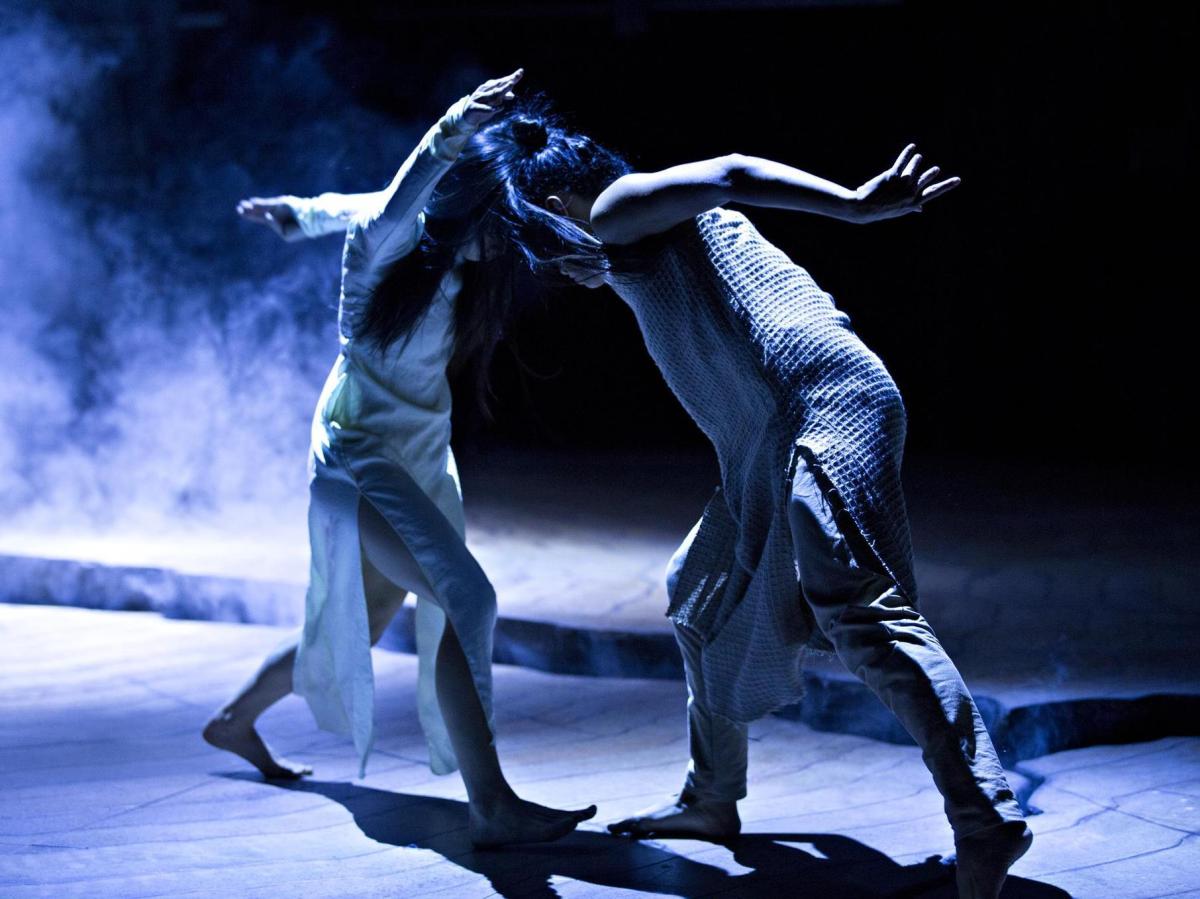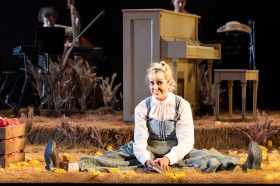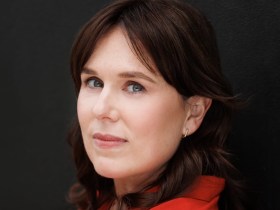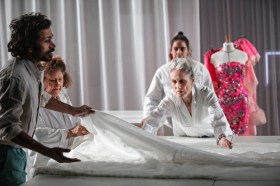Akram Khan’s Until the Lions. Image ©Jean Louis Fernandez.
Peter Brook’s epic production of The Mahabharata, performed over an entire night in a quarry at the 1988 Adelaide Festival, has become legendary in Australian arts circles. Among its many performers was a 13 year old dancer named Akram Khan, who grew up to become one of the world’s most celebrated contemporary choreographers.
Khan returns to Adelaide this September with the Australian premiere of Until the Lions, a new work inspired by a collection of poems which revisits The Mahabharata from the perspective of its female characters.
Praised by The Guardian as ‘lean, thrilling and beautiful,’ Until the Lions opens this year’s OzAsia Festival.
‘The Mahabharata was one of the most successful works to ever come through Adelaide in the history of our arts festivals, and Akram has since gone on to become one of the most important choreographers in the world,’ explains OzAsia Festival’s Artistic Director, Joseph Mitchell.
‘Until the Lions tells a unique and individual story from The Mahabharata but from a modern, contemporary and somewhat feminist perspective. And the fact that this story can come back to Adelaide with a pan-Asian cast that includes dancers from Indonesia, the Philippines and Taiwan is really a lovely way to open the festival.’
Khan’s choreography, alongside that of Russell Maliphant, Sidi Larbi Cherkaoui and Aakash Odedra can also be seen in Odedra’s solo work, Rising, which closes this year’s OzAsia Festival.
Viewed together, the two productions create a dialogue across time, engendering a sense of deep connection between artists, ideas, and generations.
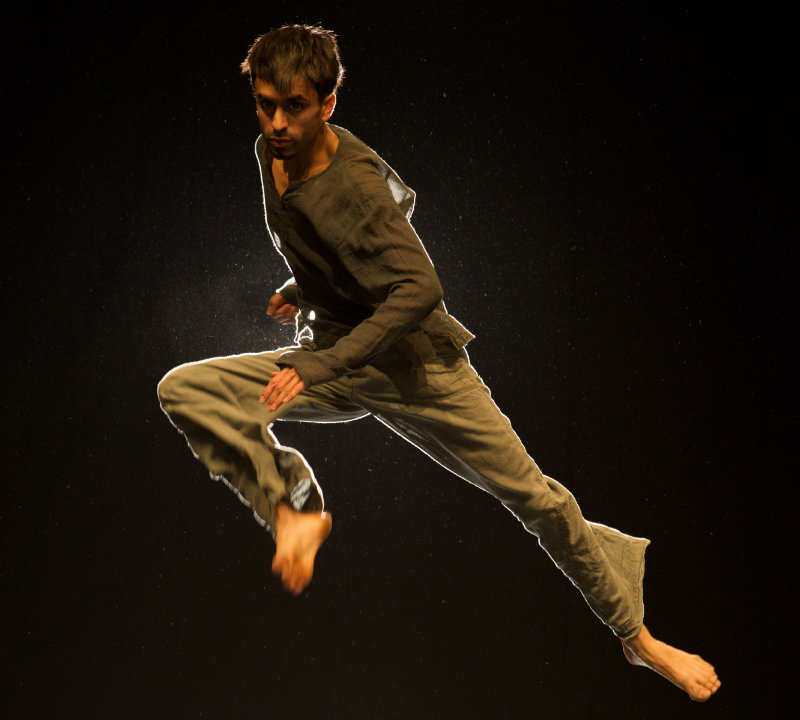
Aakash Odedra’s Rising. Photo credit: Chris Nash.
‘These two dance works are opposites in a way,’ said Mitchell. ‘As well as opening versus closing, with Until the Lions you’re looking at the nature of dance and storytelling, versus looking at the nature of choreography in Rising. There’s all these nice little connections you can explore if you really love to get inside an arts festival and consider how it puts people together.’
This sense of connection – between artists and nations – permeates Mitchell’s program for the 11th annual OzAsia Festival, running from 21 September to 8 October 2017.
‘In planning the festival it just naturally evolved that different works started to link together; different perspectives and artists were providing multiple connections from their own individual point of practice. That started to unfold, and I thought that that was a really interesting way to reflect my vision of what a festival should do,’ Mitchell said.
View the full program for OzAsia Festival 2017
The closer one examines the program the more points of connection one discovers, such as the parallels between Checkpoint Theatre’s Recalling Mother and Contemporary Asian Australian Performance’s In Between Two. Both works explore family dynamics, albeit from diametrically opposite perspectives.
‘Recalling Mother is about two women from Singapore who talk a lot about their family heritage; how their contemporary lives in Singapore are so different to how their mothers experienced migration and resettlement in Singapore, and who held onto a more traditional background,’ Mitchell told ArtsHub.
‘I was quite moved by that work and then immediately, In Between Two, which I’d seen at Sydney Festival, came to mind. That work features two young, vibrant Asian-Australian men who have been very successful in the contemporary music field talking about their family histories – it’s a fascinating counterpoint to Recalling Mother but there are clearly direct links between the two works.’
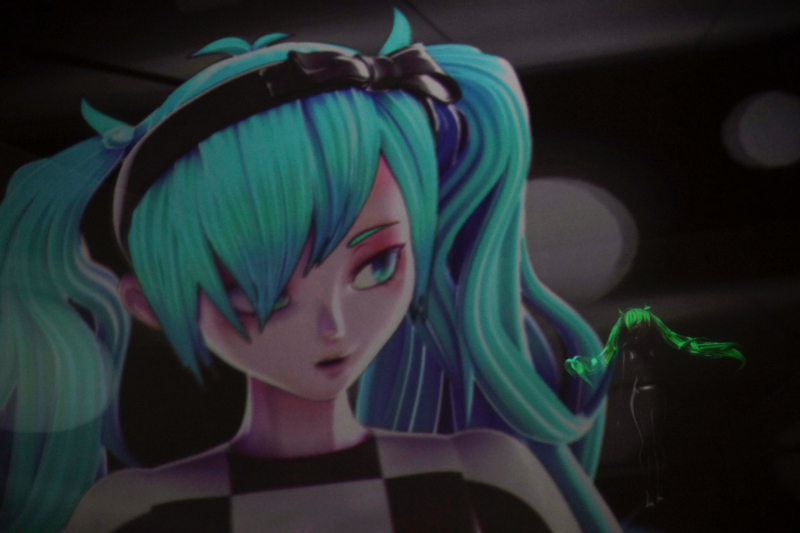
Virtual opera The End. Photo credit: Kenshu Shintsubo.
Similar pairings and partnerships are featured elsewhere in the program, providing audiences with multiple entry points by which to access the festival – or in the case of virtual opera The End, multiple entry points to access the same work.
‘I love the idea that a festival should really try and bring in different audiences to the same work,’ said Mitchell. ‘I’ve been a bit of a fan of Japanese composer Keiichiro Shibuya’s work for a while and The End is his somewhat provocatively titled “opera” … created for a virtual pop star, Miku, in which she starts to consciously question whether she is actually alive or is she stuck in an eternal void as a digital character? It’s actually a very operatic theme for the 21st century.’
Miku, who has legions of fans across Asia, appears in The End wearing clothes designed by Louis Vuitton and performing songs that are far removed from her usual three-minute, disposable pop numbers. As well as continuing the recent dialogue about the future of the operatic form in a radically new direction, the work is a rare opportunity to unite music lovers from two very different worlds.
‘Miku’s fans are very excited that she’s going to be doing a show in Australia, whereas the arts lovers are coming more for Keiichiro Shibuya as the composer of the work and the idea of what opera can be in the 21st century. I love the fact that the same show can have different audiences and different reasons for an entry point but hopefully everyone can enjoy the work on the terms in which they’ve chosen to come to see it, Mitchell explained.
Book now for OzAsia Festival 2017
Other festival highlights include the Australian debut of Japanese theatre auteur Kuro Tanino with his award-winning drama, The Dark Inn; a dynamic contemporary music program ranging from the pop-punk of Shonen Knife to post-rock bands from Indonesia and Adelaide; and Hotel, a theatrical epic from Singapore.
‘Hotel by Wild Rice is just one of the best theatre experiences I’ve seen in the last few years,’ Mitchell enthused.
‘It tells 100 years of Singaporean history over about five and a half hours. And you can see it either on two separate nights or you can see it in one long day – and I really like to see it on one day because it’s such a huge, big, emotional, impactful journey that you want to take it all in at once – it’s like binge-watching TV.
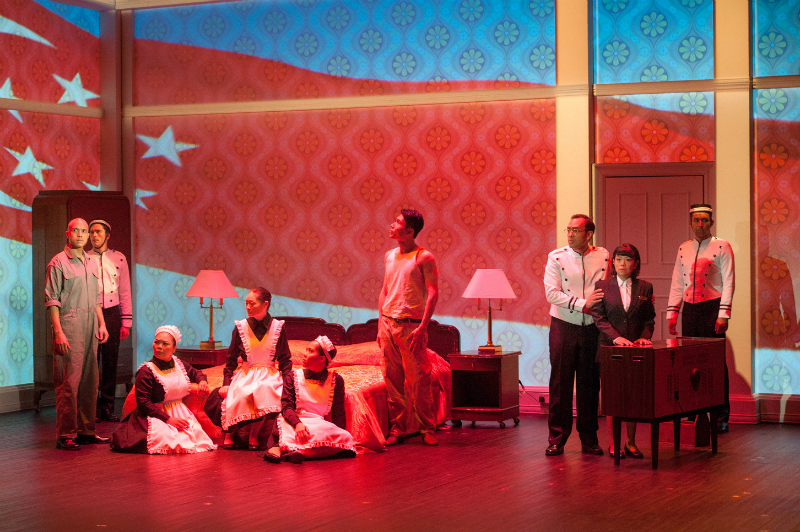
The epic theatre production Hotel. Photo credit: W!LD RICE.
‘I don’t really like saying it’s about 100 years of Singapore’s history because it sounds so dry – it’s about this cavalcade of characters and events and circumstances … from colonial occupation to Japanese occupation in World War Two, and a brief marriage with Malaysia.
‘It’s not a story about history, it’s a story about people – people from the streets and individuals from the working class and people who have passionate stories to tell. So if you’re a lover of human stories and emotion and just looking at change over time then Hotel is really just a phenomenal theatre experience,’ he concluded.
OzAsia Festival runs from 21 September – 8 October 2017. Visit ozasiafestival.com.au for full program details.

